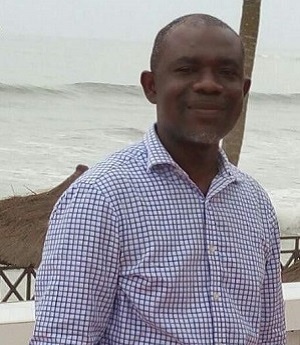 Deputy Director in charge of Conflict Management and Resolution at the NPC, Frank Wilson Bodza
Deputy Director in charge of Conflict Management and Resolution at the NPC, Frank Wilson Bodza
At least 848 conflict cases from various parts of Ghana are currently pending before the National Peace Council (NPC) for resolution.
These conflicts encompass a range of issues, with chieftaincy disputes dominating the list, alongside land litigation, communal violence, political violence, resource conflicts, and religious tensions.
In an exclusive interview with The Ghanaian Times, Frank Wilson Bodza, the Deputy Director in charge of Conflict Management and Resolution at the NPC, revealed that 558 of these cases were being addressed with support from bodies like the National House of Chiefs, while the NPC was directly managing 290 cases by engaging the feuding parties.
Expressing worry about the chieftaincy issues, Mr Bodza explained that many chieftaincy disputes stemmed from the installation or enskinment of new chiefs across various regions.
“Multiple installations of chiefs in one particular community or traditional area. Sometimes it has to do with the lineage order. So, chieftaincy conflicts in Ghana are a critical thing that we have to look at,” he added.
Mr Bodza said land conflicts, particularly boundary disputes and issues of land ownership, had become significant sources of tension between communities.
“This is a critical issue, and it often happens during the planting season, so people will fight over land to secure it for farming,” Mr Bodza added.
On communal violence, where factions within a community clash, he said it had become a prevalent issue, especially in communities in the northern part of the country.
The rise of illegal mining, known as “galamsey”, he said, had further exacerbated resource-related conflicts.
“People looking for minerals will dispute land and farm resources, even if they don’t care about destroying buildings to extract gold,” he remarked.
Additionally, Mr Bodza noted that political violence often emerged during elections, contributing to seasonal instability.
He pointed out that conflict leads to a lack of development and undermines social cohesion within communities and warned that the repercussions of conflict could persist for generations, affecting future community relations.
“When there is conflict between leaders, it is the grassroots that suffer,” he noted.
The Deputy Director said there was a disproportionate impact of conflict on women and children, noting increased crime rates and the proliferation of weapons, particularly in galamsey areas.
“Beyond that, galamsey could lead to robbery and other crimes, bringing social vices such as rape and murder in pursuit of ritual wealth,” he explained.
On religious conflicts, particularly regarding hijab and fasting, Mr Bodza said a memorandum has been developed aimed at guiding interactions among different religious groups.
Aside from the document which would be implemented by the Ghana Education Service, he said, draft guidelines to promote tolerance in secondary schools had been developed.
Mr Bodza clarified that the NPC did not function as a court or police system but rather employed soft approaches such as negotiation, mediation, and diplomacy to facilitate dialogue among conflicting parties.
“Our goal is to bring parties to the negotiating table and work towards a win-win situation,” he noted.
In addressing political conflicts, the NPC sometimes engages high-profile personalities for intervention disclosing that the council had contacted presidents of African countries to address critical political issues.
Mr Bodza also underscored the importance of public sensitisation and community engagement to educate citizens about conflict resolution, noting that the NPC was currently implementing a project in northern Ghana through the UN Peace Building Fund.
“The work of the Council is not just about calling people out or shaming them; as mediators, we must be careful about how we approach these issues,” he said.
He stressed the need to cultivate tolerance—whether ethnic, political, or otherwise—within communities to foster a more peaceful society.